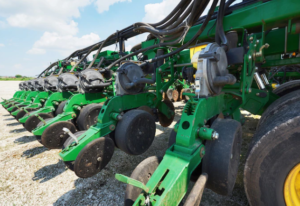Introduction
Are you in the market for a new tractor but unsure whether to go for a compact tractor or a full-size tractor? Don’t worry, I’ve got you covered! In this article, we’ll explore the pros and cons of both types of tractors, so you can make an informed decision. So, let’s dive in!
What’s the Difference?
Before we delve into the details, let’s start by understanding the fundamental differences between compact tractors and full-size tractors.
Compact Tractors
Compact tractors are smaller in size and are designed for light-duty tasks. They typically have an engine horsepower ranging from 15 to 50, making them suitable for small properties, landscaping, and hobby farming. These tractors are known for their maneuverability and versatility.
Full-Size Tractors
On the other hand, full-size tractors are larger and more powerful. They usually have an engine horsepower of 50 or more, making them suitable for heavy-duty applications such as large-scale farming, construction, and commercial operations. These tractors offer greater lifting capacity and can handle more demanding tasks.
Pros and Cons
Now that we have a basic understanding of the two types of tractors, let’s explore the advantages and disadvantages of each.
Compact Tractors
Pros:
- Maneuverability: Compact tractors are easier to maneuver in tight spaces, making them ideal for small properties or areas with obstacles.
- Versatility: These tractors can be equipped with a wide range of attachments, allowing you to handle various tasks such as mowing, tilling, snow removal, and more.
- Fuel Efficiency: Compact tractors generally consume less fuel compared to full-size tractors, which can result in cost savings in the long run.
Cons:
- Limited Power: Due to their smaller size, compact tractors may not have enough power to handle heavy-duty tasks or operate certain attachments.
- Limited Lifting Capacity: These tractors have a lower lifting capacity compared to full-size tractors, which can be a limitation when working with heavier implements.
Full-Size Tractors
Pros:
- Power and Performance: Full-size tractors offer more power and performance, making them suitable for demanding tasks and heavy implements.
- Lifting Capacity: These tractors have a higher lifting capacity, allowing you to handle larger loads and operate more substantial attachments.
- Durability: Full-size tractors are built to withstand rugged conditions and heavy use, ensuring their longevity and reliability.
Cons:
- Size and Maneuverability: Full-size tractors are larger in size, making them less maneuverable in tight spaces or areas with obstacles.
- Cost: These tractors tend to be more expensive than compact tractors, both in terms of upfront cost and maintenance.
Conclusion
Choosing between a compact tractor and a full-size tractor ultimately depends on your specific needs and requirements. If you have a small property or need a versatile machine for light-duty tasks, a compact tractor may be the right choice for you. On the other hand, if you have a large-scale operation or heavy-duty tasks, a full-size tractor will provide the power and performance you need. Consider factors such as the size of your property, the type of tasks you’ll be performing, and your budget before making a decision.


